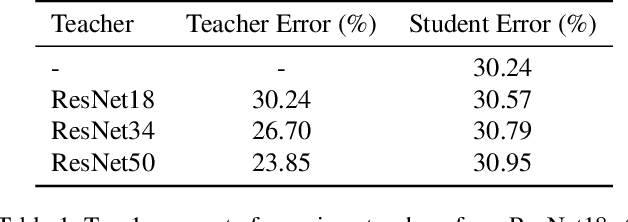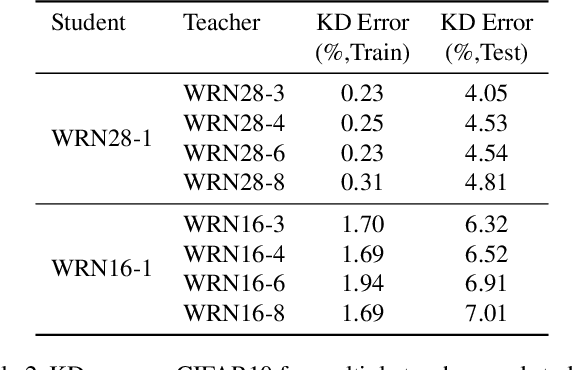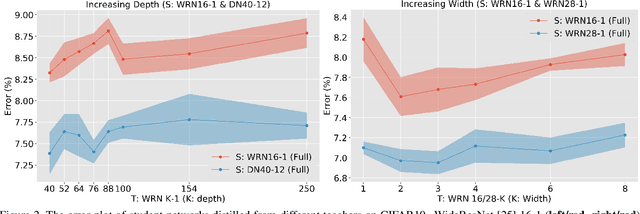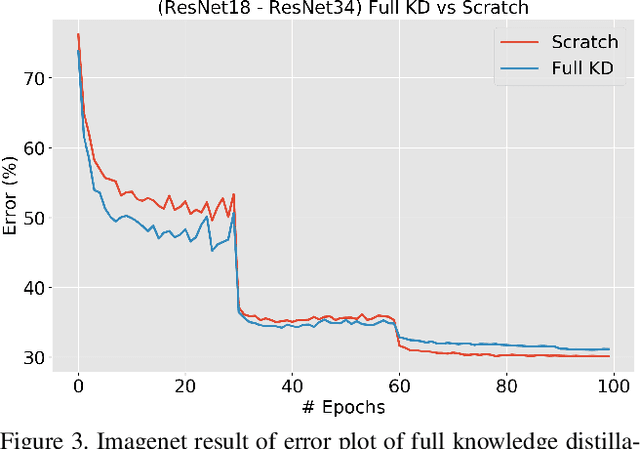On the Efficacy of Knowledge Distillation
Paper and Code
Oct 03, 2019



In this paper, we present a thorough evaluation of the efficacy of knowledge distillation and its dependence on student and teacher architectures. Starting with the observation that more accurate teachers often don't make good teachers, we attempt to tease apart the factors that affect knowledge distillation performance. We find crucially that larger models do not often make better teachers. We show that this is a consequence of mismatched capacity, and that small students are unable to mimic large teachers. We find typical ways of circumventing this (such as performing a sequence of knowledge distillation steps) to be ineffective. Finally, we show that this effect can be mitigated by stopping the teacher's training early. Our results generalize across datasets and models.
 Add to Chrome
Add to Chrome Add to Firefox
Add to Firefox Add to Edge
Add to Edge